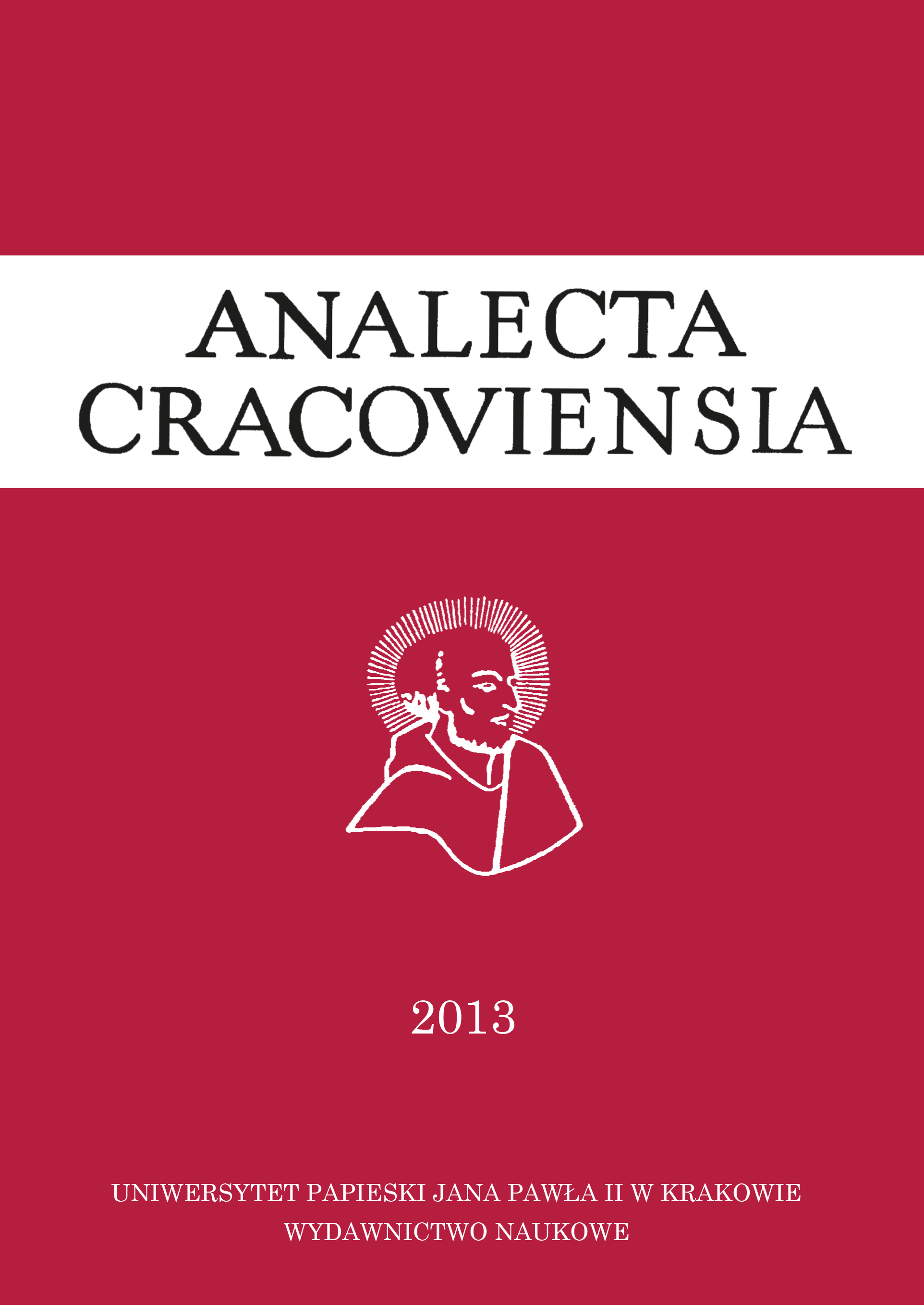Odwieczny akt generatio Syna jako model dla teologii, bioetyki i duchowości
DOI:
https://doi.org/10.15633/acr.1132Słowa kluczowe:
Begetting the Son, dogmatic theology, bioethics, procreation, spirituality, image of GodAbstrakt
The article analyzes the influence of the dogmatic truth of the begetting of God’s Son by the Father for theology, bioethics and spirituality. The inner life of God is a main subject of the theological reflection. God the Father is in the incessant movement to another – to the Son. He is still begetting His Son in eternal now. There is why theology should describe God not in static or stagnant terms but as a being in constant act of forgetting about himself; as a primal source of all constructive activity in the world. The act of begetting the Son has also its repercussions for bioethics, especially these concerning every human procreation. The Father is begetting His Son in Himself and in the act of love. The same conditions are supposed to be kept in case of the conception of every child. Because the procreation is a participation of man in the God’s creation, it should take place in the act of love and inside the female body. As for spirituality, the eternal act of begetting the Son by the Father shows the inner orientation of every human life as a service for others and the attitude of self-offering.
Pobrania
Opublikowane
Numer
Dział
Licencja
Prawa autorskie (c) 2015 Andrzej Muszala

Praca jest udostępniana na licencji Creative Commons Attribution-NonCommercial-NoDerivatives 3.0 Unported License.
Autorzy publikujący w czasopiśmie udzielają jego wydawcy zgody o następującej treści:
- Autor zachowuje autorskie prawa majątkowe do utworu, a jednocześnie udziela wydawcy czasopisma zgody na jego pierwszą publikację w wersji drukowanej i wersji online na licencji Creative Commons Uznanie autorstwa 4.0 Międzynarodowe oraz zgody na wykonywanie opracowań, w tym przekładów.
- Autor ma możliwość udzielania zgody niewyłącznej na opublikowanie utworu w wersji, która ukazała się w czasopiśmie (np. zamieszczenia go w repozytorium instytucjonalnym lub opublikowania w książce), wraz z informacją o jego pierwszej publikacji w czasopiśmie.
- Autor może umieścić swój utwór online (np. w repozytorium instytucjonalnym lub na swojej stronie internetowej) jeszcze przed zgłoszeniem utworu do czasopisma.

